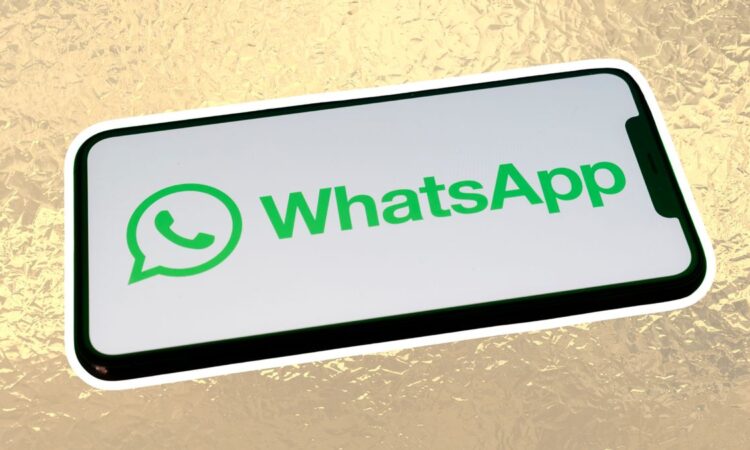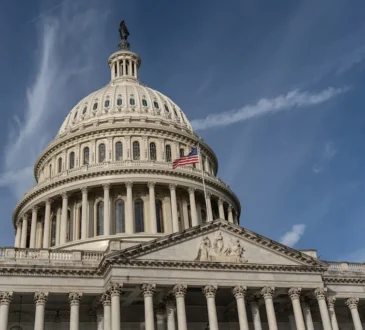
Claim:
In 2025, WhatsApp offered a premium version of the app called “WhatsApp Gold.”
Rating:

Rating: Scam
In October 2025, questions surfaced over a supposed “WhatsApp Gold” update — an alleged premium version of WhatsApp that supposedly offers exclusive features like new emojis and better video quality.
Multiple Facebook users shared warnings about the supposed “WhatsApp Gold” update, describing it as a scam that would install malicious software on people’s phones and compromise their personal information. The posts urged people not to engage with text messages describing the alleged premium version of WhatsApp.
One Facebook user, citing a warning supposedly heard on the radio, called the supposed update a “long-running scam and hoax, not an official update from WhatsApp.” According to the post, messages promoting the alleged scam falsely claimed users could unlock “exclusive features” like video calls, new emojis or chat colors by upgrading the app.
Some users connected the “WhatsApp Gold” scam to another purported hoax about a video called “Martinelli” — a video that, if opened on WhatsApp, would supposedly hack into people’s phones.
Multiple Snopes readers searched our website to verify whether “WhatsApp Gold” was a legitimate app update or scam.
The messages urging caution were legitimate. As Snopes previously reported, WhatsApp does not offer a premium version of the app called “WhatsApp Gold,” and messages promoting the alleged update are likely aiming to steal personal information or infect devices with malware. Versions of this hoax have been tricking people for nearly a decade.
In a statement emailed to Snopes, WhatsApp confirmed that “WhatsApp Gold” is a hoax and not an official version of the app:
No, WhatsApp does not offer things like WA Gold or WA Plus. This is a hoax that has again resurfaced. We strongly encourage people to only use the official WhatsApp app. We don’t support unofficial clients — which could use many different names — because they carry real security or privacy risks to the people they trick into downloading them.
Separately, we debunked the existence of the so-called “Martinelli” video. Despite social media claims, there was no evidence of such a video, much less one that can hack people’s phones. The hoax began circulating in 2017 and is incorrectly linked to legitimate warnings about “WhatsApp Gold” scams.
Similar hoaxes linking videos called “Dance of the Pope” and “Dance of the Hillary” to viruses or cyberattacks have also circulated online for years.
Scam is nearly a decade old
Scammers first tricked WhatsApp users into downloading the malicious unofficial “WhatsApp Gold” update in 2016, according to multiple news outlets. Instead of getting an exclusive version of the app, users dealt with malware that infected their devices, the British newspaper The Independent reported in May 2016.
Since then, multiple cybersecurity experts have issued warnings about the “WhatsApp Gold” scam.
Cybersecurity companies Norton and Avira, along with the United Kingdom’s National Fraud & Cyber Crime Reporting Center, explained on their websites that scam messages promoting the “WhatsApp Gold” hoax entice users with false promises of new features, such as unlimited media sharing, special filters, improved video-call quality, new emojis and increased security.
The scam messages typically urge people to sign up for the fraudulent app through a download link that takes them to a malicious website, where cybercriminals attempt to harvest personal information or install malware onto the victims’ devices.
Viruses, spyware and ransomware are common types of malware, according to the Federal Trade Commission. Cybercriminals can use malware to steal information like bank account numbers, Social Security numbers and usernames and passwords.
Tips to protect yourself
So how can you protect yourself from the “WhatsApp Gold” scam? Cybersecurity experts offer several tips.
On its website, Norton urged people to remember that WhatsApp only offers one official version of its platform, available for free through legitimate app stores, such as Apple’s App Store or the Google Play Store. “Any message promoting premium variants is automatically fraudulent,” Norton said.
Also, Avira advised on its website against clicking unexpected or suspicious links. If a suspected scammer contacts you on WhatsApp, do not interact with them and block the number immediately, the company added.
Norton provided additional information on its website about other common WhatsApp scams, including fraudulent job offers, verification code schemes and more.
For further reading, Snopes previously debunked another rumor about WhatsApp, one that falsely claimed a new AI feature allows the company default access to all chats unless users enable an “advanced privacy” option.
Sources:
Evon, Dan. “‘WhatsApp Gold’ Virus.” Snopes, Snopes.com, 2 June 2016, www.snopes.com/fact-check/whatsapp-gold-scam/. Accessed 15 Oct. 2025.
Mikkelson, David. “WhatsApp ‘Martinelli’ Phone Virus Warning.” Snopes, Snopes.com, 17 Apr. 2018, www.snopes.com/fact-check/whatsapp-martinelli-phone-virus-warning/. Accessed 15 Oct. 2025.
“Royal Gibraltar Police – News.” Police.gi, www.police.gi/news/recent-warning-on-possible-whatsapp-malicious-video-17. Accessed 15 Oct. 2025.
Mikkelson, David. “‘Dance of the Pope’ Virus Warning.” Snopes, Snopes.com, 7 Apr. 2015, www.snopes.com/fact-check/dance-of-the-pope-virus-hoax/. Accessed 15 Oct. 2025.
Liles, Jordan. “Warning about ‘Dance of the Hillary’ Video and Pakistani Cyberattack Is a Hoax.” Snopes, Snopes.com, July 2025, www.snopes.com/fact-check/dance-of-the-hillary/. Accessed 15 Oct. 2025.
Chambers, Georgia. “WhatsApp Gold Virus 2019: The ‘Martinelli’ Message Explained | London Evening Standard.” The Standard, Evening Standard, 20 Mar. 2020, www.standard.co.uk/news/tech/whatsapp-gold-virus-martinelli-message-explained-a4030661.html? Accessed 15 Oct. 2025.
Bolton, Doug. “WhatsApp Gold: Scammers Trick Mobile Phone Users into Downloading Malware | the Independent.” The Independent, 25 May 2016, www.the-independent.com/tech/whatsapp-gold-plus-scam-malware-download-get-message-a7045606.html. Accessed 15 Oct. 2025.
Farrier, Ellie. “15 WhatsApp Scams Happening Right Now and How to Avoid Them.” @LifeLock, LifeLock, 19 Aug. 2025, lifelock.norton.com/learn/fraud/whatsapp-scams?srsltid=AfmBOorjNoSu_fIfvb_mN6zgcABitO-jxp-ztKrx48rSHq9FFloFHznR. Accessed 15 Oct. 2025.
Avira. “Detect and Avoid WhatsApp Scams | Avira.” Avira Blog, 22 Jan. 2025, www.avira.com/en/blog/whatsapp-scams?srsltid=AfmBOoo1O0k31VcCZERs8cKSWdL-L1HvXfRlijlGGitxbtgBf8FQhlFE. Accessed 15 Oct. 2025.
“‘WhatsApp Gold’ Hoax Makes a Comeback | Action Fraud.” Action Fraud, 7 Jan. 2019, www.actionfraud.police.uk/alert/whatsapp-gold-hoax-makes-a-comeback-follow-our-advice-to-keep-yourself-protected?utm_source=chatgpt.com. Accessed 15 Oct. 2025.
“Malware: How to Protect Against, Detect, and Remove It.” Consumer Advice, 11 Oct. 2024, consumer.ftc.gov/malware-how-protect-against-detect-remove-it#what. Accessed 15 Oct. 2025.




